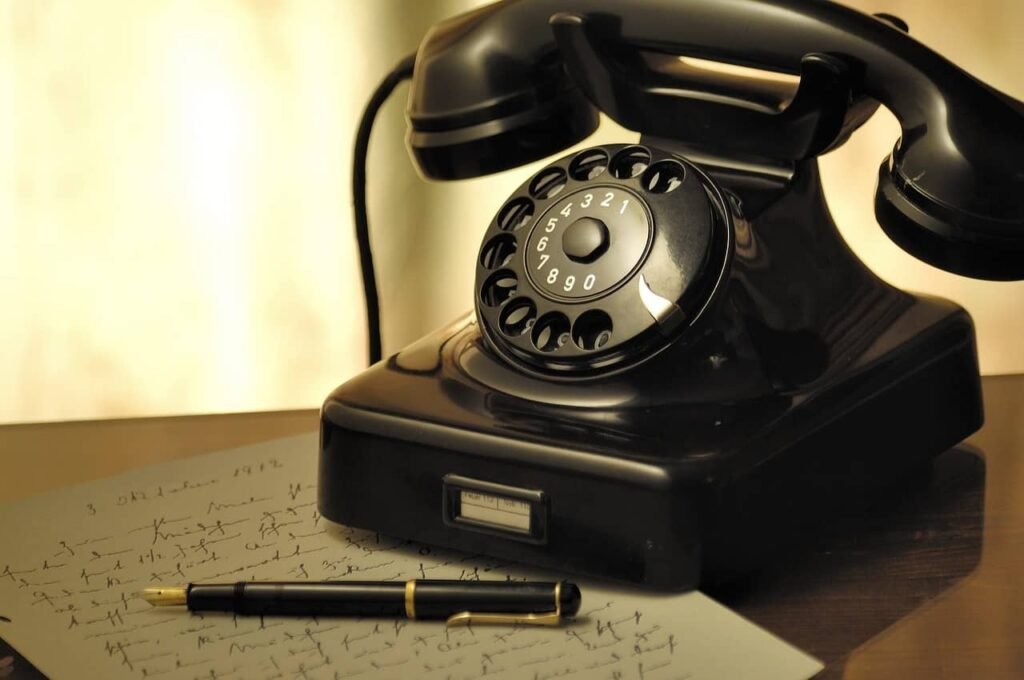“Just call them.”
I often hear that phrase. The people who say that have no idea how anxiety-inducing a simple phone call can be for an autistic person.
This is what the fear of phone calls as an autistic adult looks like.
The fear of phone calls as an autistic person
My Epipen had expired, and so had the prescription.
I was hoping I could request renewal online. But the public healthcare online service only shows two pages of prescriptions. If you have too many prescriptions, some of the older ones disappear.
Then you can’t get them renewed online but have to call the healthcare services.
I almost had a meltdown when I realized I would have to call about my Epipen prescription.
I’m autistic, and for me, making phone calls is hard.
I do almost anything to avoid making phone calls. I couldn’t handle the phone calls from the employment services. I had to stop using them because my anxiety got so high.
Being without Epipen is not an option, though. That could be life-threatening. The only way to get Epipen is to make a phone call.
I put the task of making a phone call on my calendar. I called the public health services and said I needed to renew my Epipen prescription.
I suppose taking care of the business right away would have been too easy. The receptionist connected me to another phone number. Instead of a human, an answering machine answered my call now.
If I wanted an influenza vaccine, I would have to dial one. In case I had to book an appointment, I should dial two. If it was something else, the answering machine wanted me to dial three.
I dialed three. Then, the answering machine told me the service was busy, and that I should call again.
That’s the worst thing about calling public services. When you finally get motivated to grab your phone, an answering machine answers your call. You don’t even get to talk to a human and take care of your business.
You need to call again and again. If you’re lucky, you get to talk to a human one day and get your medicine or whatever you need.

“Anything but the phone”
245 autistic adults ranked six communication methods in a study researching how autistic adults prefer to communicate in different situations.
The name of the study is fitting: ‘Anything but the phone!’: Communication mode preferences in the autism community.
Indeed, phone calls were the least popular communication method amongst the respondents.
The responders described that saying what they need and want verbally is difficult. They also mentioned that the fast pace of phone calls overloads them.
That’s exactly how I feel. I have difficulties expressing my needs verbally, especially on the phone. I’m afraid I won’t get what I need, such as lifesaving medicine, if I have to request it on the phone.
Some respondents said it’s ”difficult to interpret someone’s tone or intentions” on the phone.
The most common problem of phone calls mentioned in the study was ”debilitating anxiety”. The respondents described the extreme stress that phone calls caused them.
According to the study, “the findings suggest that services should move away from a reliance on phone calls for communication”. Services should “make sure that access to support is not dependent on the phone”. Instead, they should offer more accessible options, such as e-mails and live messaging.
Public services are ableist
Public services are ableist.
Public services want to make accessing them as difficult as possible. Their customers cost them money instead of making a profit for them. That’s why we’re not wanted. These services need gatekeepers such as inaccessible phone numbers to keep the customers away.
People with disabilities suffer from inaccessible services the most. People with disabilities and illnesses are also the ones who need health care services the most.
The tax authorities in Finland have an online chat service. Maybe tax authorities have better online services than public health care because they want the tax money. I contacted the chat once, but they told me to call customer service. So, it wasn’t that great, after all.
They also have an online contact form, which I used once. It took days to get a reply. You would get an instant reply by phone. That is, of course, if you get a human to answer your call.

But the public health services don’t have online chats or contact forms.
The phone as the only way to contact a service discriminates against many groups of people. Autistic adults are one of them.
A good customer service chat makes a company my favorite
I wanted to buy a computer from an online store.
The customer service chat replied to my messages at 4.30 pm on Friday. Good for them! I got answers to all my questions and ordered a computer, monitor, keypad, and mouse.
If I had not gotten the answers, I had not bought anything, at least not yet. The company would have lost a sale.
It seems that some private companies are the only ones that make an effort to provide customer service online. That’s because they profit from their customers, unlike public services.
Private companies actually want their customers to be able to contact them. That’s why they provide different contact methods to meet the needs of as many customers as possible. This is my theory, anyway.
These companies haven’t necessarily considered the needs of autistic customers when planning their services. But autistic adults definitely benefit from the different contact methods.
Of course, accessibility shouldn’t be limited to private services. Public services are the ones that are supposed to serve everyone. They’re public services, after all.
We live in an internet era — The ableist phone circus has to stop
The phone is the only way to contact most public services, even though we live in an internet era. These services are ableist.
Research shows that extreme anxiety about phone calls is common among autistic adults.
The phone as the only contact method for public healthcare discriminates against autistic adults.
We need alternative methods to contact public services, such as e-mail. The ableist phone circus has to stop.

You might also like:







